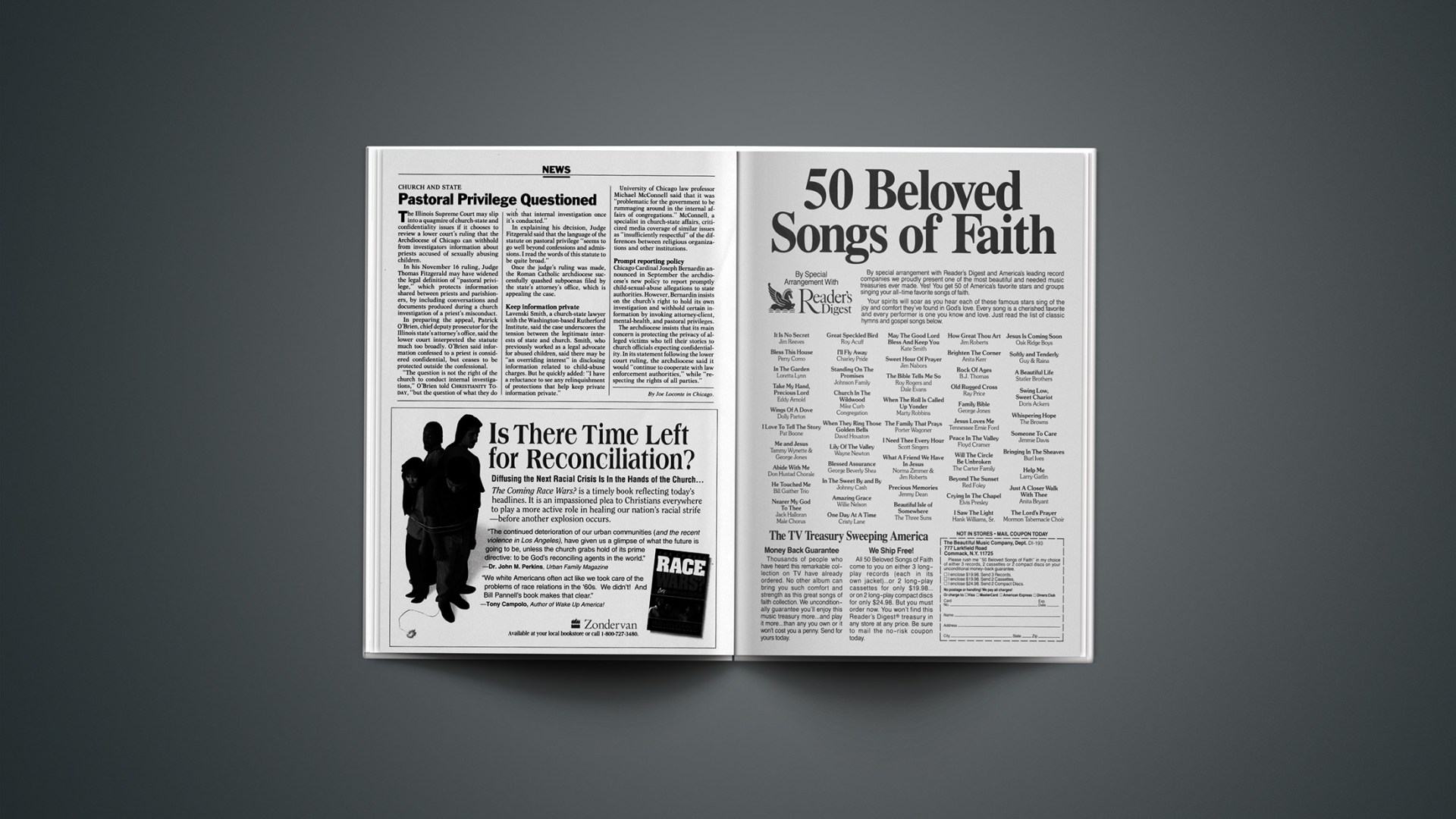The Illinois Supreme Court may slip into a quagmire of church-state and confidentiality issues if it chooses to review a lower court’s ruling that the Archdiocese of Chicago can withhold from investigators information about priests accused of sexually abusing children.
In his November 16 ruling, Judge Thomas Fitzgerald may have widened the legal definition of “pastoral privilege,” which protects information shared between priests and parishioners, by including conversations and documents produced during a church investigation of a priest’s misconduct.
In preparing the appeal, Patrick O’Brien, chief deputy prosecutor for the Illinois state’s attorney’s office, said the lower court interpreted the statute much too broadly. O’Brien said information confessed to a priest is considered confidential, but ceases to be protected outside the confessional.
“The question is not the right of the church to conduct internal investigations,” O’Brien told CHRISTIANITY TODAY, “but the question of what they do with that internal investigation once it’s conducted.”
In explaining his decision, Judge Fitzgerald said that the language of the statute on pastoral privilege “seems to go well beyond confessions and admissions. I read the words of this statute to be quite broad.”
Once the judge’s ruling was made, the Roman Catholic archdiocese successfully quashed subpoenas filed by the state’s attorney’s office, which is appealing the case.
Keep information private
Lavenski Smith, a church-state lawyer with the Washington-based Rutherford Institute, said the case underscores the tension between the legitimate interests of state and church. Smith, who previously worked as a legal advocate for abused children, said there may be “an overriding interest” in disclosing information related to child-abuse charges. But he quickly added: “I have a reluctance to see any relinquishment of protections that help keep private information private.”
University of Chicago law professor Michael McConnell said that it was “problematic for the government to be rummaging around in the internal affairs of congregations.” McConnell, a specialist in church-state affairs, criticized media coverage of similar issues as “insufficiently respectful” of the differences between religious organizations and other institutions.
Prompt reporting policy
Chicago Cardinal Joseph Bernardin announced in September the archdiocese’s new policy to report promptly child-sexual-abuse allegations to state authorities. However, Bernardin insists on the church’s right to hold its own investigation and withhold certain information by invoking attorney-client, mental-health, and pastoral privileges.
The archdiocese insists that its main concern is protecting the privacy of alleged victims who tell their stories to church officials expecting confidentiality. In its statement following the lower court ruling, the archdiocese said it would “continue to cooperate with law enforcement authorities,” while “respecting the rights of all parties.”
By Joe Loconte in Chicago.










